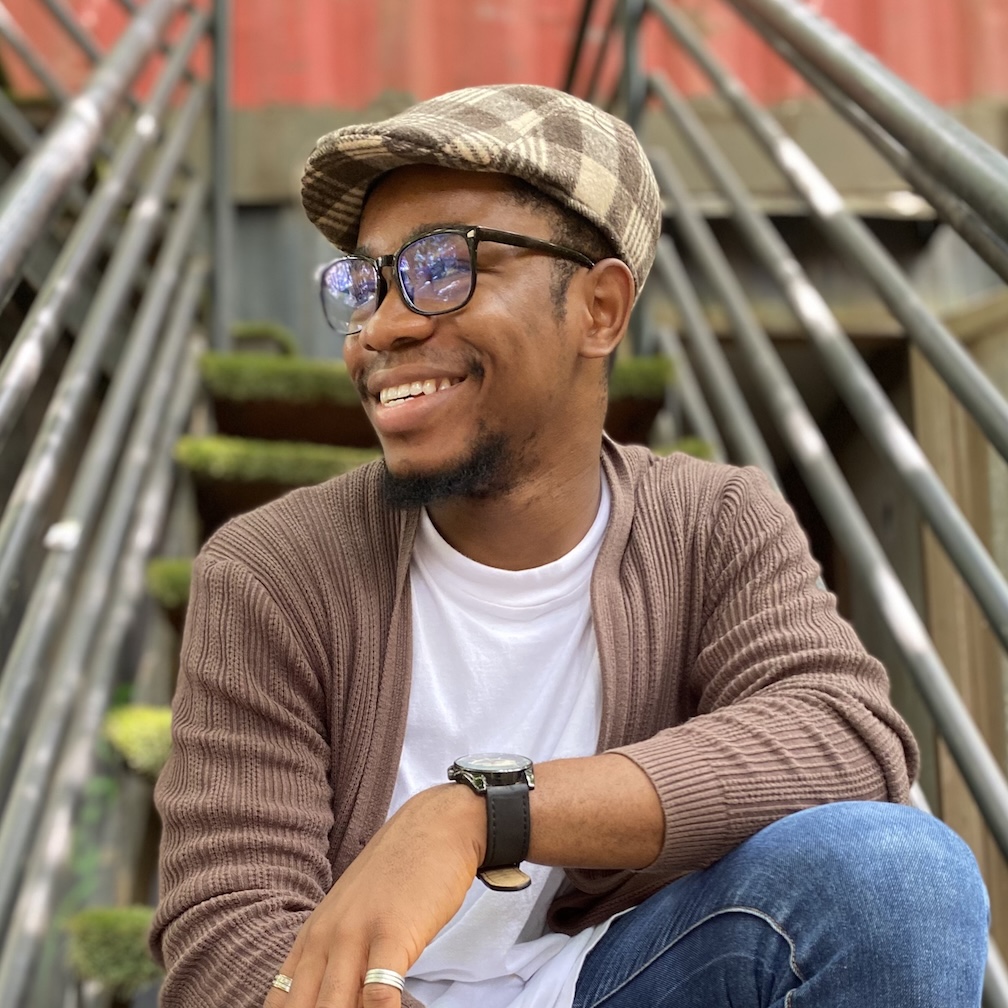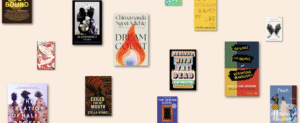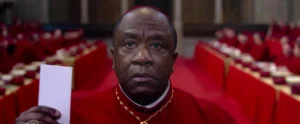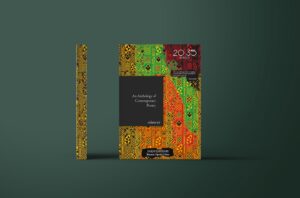
Several threads weave our lives together in this world, and their commonality makes them integral to our existence. I refer to our strong suite of feelings which are raised past essential status to irresistible forces. In every poem in 20.35 Africa Volume VIII, guest-edited by Sarah Lubala and Logan February, beneath whatever story they tell, we are haunted by these emotions. The craft here is direct and rooted in the poets’ traditional and religious backgrounds, but also deploys language that seeks, primarily, to break past the limitations of cultural heritage.
The anthology begins with desire and the divine. Paul Damilare tasks God with cleaning up after the expression of his impulse: “if i tend to his creation, / let God tend to my desecration.” His “Rebellion on Lent Morning” contemplates shared responsibilities, reclaiming power as a worshipper of it, and discrediting any one way to ask things of one’s God: “there’s a place for such prayers on / heaven’s road. / they pile into a bonfire / and illuminate the way for well-made petitions.” Often, the desired and the divine are separate. In “Eskista,” Hiwot Adilow reflects: “I could never dance before / born wound tight by piety.” And perhaps this is what these poems charge us with, to find our “chorus of illita,” to break free until: “I’m ready / to quake.”
Desire changes forms. This we garner from Catherine McNaught Davis’s “Synesthesia,” which takes us into that sensory mind, and we see how perceptions of the persona take different shades, how bliss is “lightning strikes of silver / forking through my cells,” and light blue when their lover is “under me / her delight this perfect heavenly hue.” Language, on this level, is a snapshot of the working and malleable shapes of the interior. We could project desire into the future, into what we long for, and it would assume materiality as in Loic Ekinga’s “Patrice”: “In the year 2060, my lover will be 63 years old / and we’ll hopefully continue to talk about loss & giggle.”
Or, like Naomi Nduta Waweru in “Towards the End,” we could visualize it through mournful eyes: “a sunroom. a bell-ringing ritual. / you swaying your hips to kwaito in your ill-fitting camisole / as if you could not possibly break.” Grief here is written in its original meaning, as memories that haunt without palpability, growing desolate, made more sorrowful outside this loss, through the finality the poem ends with: “your bones disintegrated into shards/ like porcelain / i cannot stop replaying the crack sound.” Somewhere else, the persona in Hiwot Adilow’s “Feeling Fucked Up” goes to a “sticky dancefloor” seeking songs by her favorite singer and damning everything that isn’t or, still, that reminds them of the singer: “fuck history and the ties that bind / fuck the fingers that play and / your hands that mapped and digitized desire fuck / what it could have been and fuck what it was.”
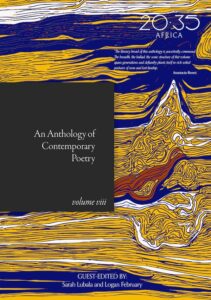
When we sit with these yearnings and mourning that tie our lives together, we see the necessity of tradition — a key element in every aspect of our lives. We interact with the divine through tradition, so that a single religion manifests differently in different cultures. The way we express joy, the way our longings fold out of our skin, is skewed by the weight of customs. Our interaction with ourselves, with family, and with the environment is defined by the outlook and philosophy of where we come from. So that what the poets in this volume explore, the ways they take them apart, differ from the lens of other poets from different backgrounds who, within the same parameters, explore similar subjects. I do not refer now to the bias of personal experience but to the framework from which the thought and creative processes happen.
Felix Eshiet muses about a rabbit he took in as a pet and the reverence he extends to her as an Ibibio indigene: “I don’t feed her carrots, I feed her elephant grass – / she’s a goddess.” It is a veneration of the rabbit’s ways of being: “I open the door. I let her out. / Not because I am kind, but because I am afraid. / A goddess should not live in a cage.” In “Willingness,” Chiagoziem Jideofor ponders acceptance in familial relations, where all flaws and “beasts are loved equally”: “family is willingness to be cured, pruned out with bloody hands / …the same way of digging, of heaping the barn, of drying next season’s meat.” When Ojo Blessing’s persona reminisces on help that they received in the past, the physical appearance of their helper, their cultural facial marks, is what’s described: “All the mercies I received, / I remember. The tribal mark of a boy who chased his cashmere goats / to the cold hands of night to give me shelter looked like God.”
This book closes, also, with the divine. As the poets interrogate their relationship to God through imagery, metaphor, and theme, I couldn’t help but notice how the verses of this generation reflect a struggle with piety and modes of worship, in a world that is redefining how we interact with, and demonstrate, our belief systems. In “Agnostic,” Obafemi Thanni wrestles with his doubt: “Paul became those he persecuted after / witnessing. Yet, history holds its grudge against / Thomas for a moment’s doubt. Despite acknowledging / his Lord’s divinity afterwards.” And in “Arke 82,” Kaleab Abayneh exalts the waters of the earth: “As if you weren’t the path / of the sun and the moon and the stars. / A god worth worshipping, / and the thing beyond a metaphor…”
20.35 Africa Volume VIII is an invitation to think about poetry not just with creative lenses but also with cultural ones, to understand how literary tradition differs from continent to continent, country to country, city to city. Experiences, they reveal, are not limited to internal make-ups of individuals; they are environmental, familial, and traditional. ♦
20.35 Africa Volume VIII, guest-edited by Sarah Lubala and Logan February, is published online by 20.35 Africa.
More on 20.35 Africa Poetry Series
— With 20.35 Africa, Ebenezer Agu Is Curating New Voices in Poetry
— 20.35 Africa Vol. VII, Guest-edited by Kwame Opoku-Duku: “This Grasping for Hope Walks with Us”
— 20.35 Africa Vol. VI, Gdited by Nick Makoha and Safia Jama: “Creating a New Tradition in African Poetry”
— 20.35 Africa Vol. V: “An Adoption of Language to Contain This Violence”
— 20.35 Africa Vol. IV, Guest-edited by Nadra Mabrouk and K. Eltinae: “The Opportunity to Read African Poetry Along Language Aesthetics”

